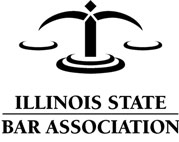Generic Drugs: Gaining Traction in the Courts?
Posted: March 15, 2016

At MLG, we have filed several complaints against drug manufacturers who manufacture, distribute, market and sell pharmaceutical drugs, which are unreasonably dangerous; fail to provide proper warnings regarding the adverse side effects of drugs; negligently misrepresent the drug; and fail to adequately investigate dangerous drugs.
Currently, we are working on a case for a client who died from bladder cancer as result of taking a brand-name drug for years. He did not realize that by ingesting this drug, he was slowly causing himself to die.
We have another case in which a man who took a brand-name drug for a few days, which caused the demise of his major organs.
The common thread in our cases is that the clients ingested the brand-name drug, not the generic version of it. But now, the tide could change and lawsuits involving generic versions of drugs may become fair game.
In a recent Chicago Law Bulletin article, it discussed a case where a federal judge refused to dismiss a lawsuit accusing the drug manufacturer of the anti-depressant, Paxil, of liability in the suicide of a Chicago lawyer who took a generic version on the drug and jumped in front of a CTA train in the Loop.
U.S. District Judge James B. Zagel rejected the argument that the negligence claims brought under Illinois law by the decedent’s wife were pre-empted by federal law. Instead, a failure-to-warn-claim is pre-empted by federal law, he wrote, citing Wyeth v. Levine 555 U.S. 555 (2009), only if there is “clear evidence” the U.S. FDA would not have approved the warning the plaintiff alleges is required by state law. In this case, Judge Zagel said the drug manufacturer presented no such evidence.
Moreover, Zagel wrote that in 2007, the FDA invited the drug manufacturer to discuss the option of keeping language on Paxil’s label warning of the increased risk of suicide or suicidal thoughts in adults. Zagel further stated that the drug manufacturer didn’t take the FDA up on that offer and failed to meet with the FDA about this language regarding suicide; therefore, it failed to meet the burden of showing it would have been useless to get permission from the FDA to add the suicide warning to Paxil’s label.
That said, Zagel stated that even though the drug manufacturer did not make the generic version of the drug that the decedent ingested, the federal Hatch-Waxman Act requires that a generic drug’s design and warning label must match those of the brand-name drug. Therefore, he said the brand-name drug maker must, in certain circumstances, face suits — under Illinois law of common-law negligence, negligent misrepresentation and product liability based on a negligence theory — based on the warnings on the generic version’s label.
This ruling could be a game changer. The suit is set to go to trial on September 19, 2016. We will have to keep an eye on this one.
If you feel that you or a loved one has been the victim of ingesting a pharmaceutical drug, generic or brand-name, it is important that you contact a qualified personal injury attorney as soon as possible. Contact the Law Office of Martin L. Glink today at 847-394-4900.





